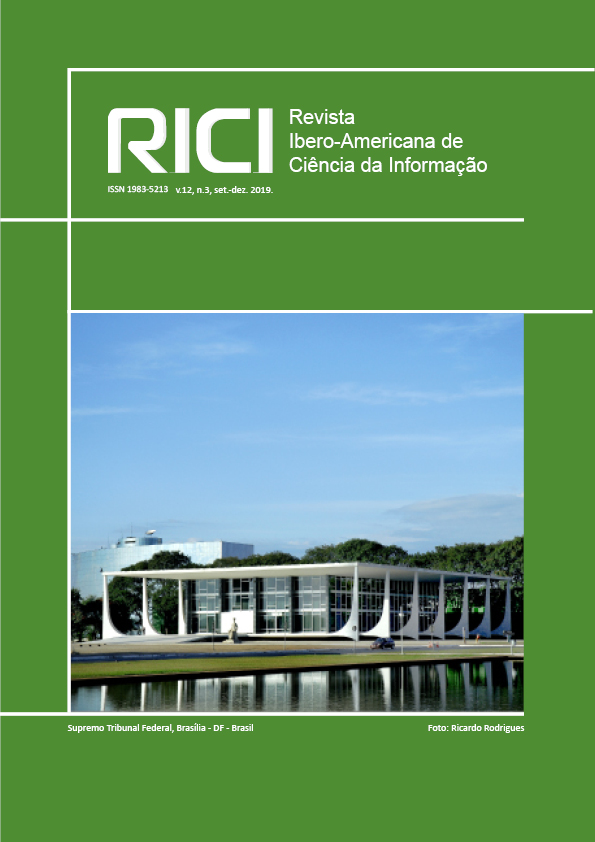Women and mothers of Bolsa Família: access to information, empowerment and citizenship in three communities in Sergipe (Brazil)
DOI:
https://doi.org/10.26512/rici.v12.n3.2019.26763Keywords:
access to information. Empowerment. Citizenship. Bolsa Família Program. gender public policies.Abstract
The objective of this work is to present the IINFORMENTO (Access to Information and Empowerment for Equality and Citizenship) methodological model developed in my doctoral thesis - Women and mothers of the Bolsa Família Program: access to information, empowerment and citizenship: a study of three communities of Sergipe (2017) - to analyse the qualitative interviews. The starting point of the thesis concerns the changes that have taken place in society in general, and in women in particular, since the creation of this social program by former President Luiz Inacio Lula da Silva in 2003, which aimed to reduce the effects of extreme poverty in Brazil. In this way, INFORMENTO combines the methodological models IDEIAS (Digital Inclusion and Informational Education for Health) and AURA (Self-reinforced Accompaniment). The first model allows the building of bases for Information Literacy through indicators that approach the development of skills and competences in the use of the internet as learning for life. On the other hand, the second model allows us to follow the process of empowerment for women in development projects through the creation of indicators in specific contexts. The combination of the indicators of these models allowed us to ascertain the informational knowledge and empowerment process and to measure them through the levels of 'knowing', 'doing', 'having' and 'power'. The research concluded that access to a monthly income such as Bolsa Família was important for the women interviewed, because they gained access to other devices of social and democratic life, such as education and healthcare, and thus built and exercised their citizenship. Therefore, it was a factor of empowerment due to the scope of institutional action. However, the conclusions also point to the need to develop training in 'Information Literacy for Empowerment' as a way of contributing to the autonomy, development and quality of life of women.
Downloads
Downloads
Published
How to Cite
Issue
Section
License
Copyright Notice
Authors who publish in this journal agree to the following terms:
- Authors retain copyright and grant the journal right of first publication with the work simultaneously licensed under the Creative Commons Attribution License 4.0, allowing the sharing of work and recognition of the work of authorship and initial publication in this journal.
- Authors are able to take on additional contracts separately, non-exclusive distribution of the version of the paper published in this journal (ex.: distribute to an institutional repository or publish as a book), with an acknowledgment of its initial publication in this journal.
- Authors are permitted and encouraged to distribute their work online (eg.: in institutional repositories or on their website) at any point before or during the editorial process, as it can lead to productive exchanges, as well as increase the impact and citation the published work.
















